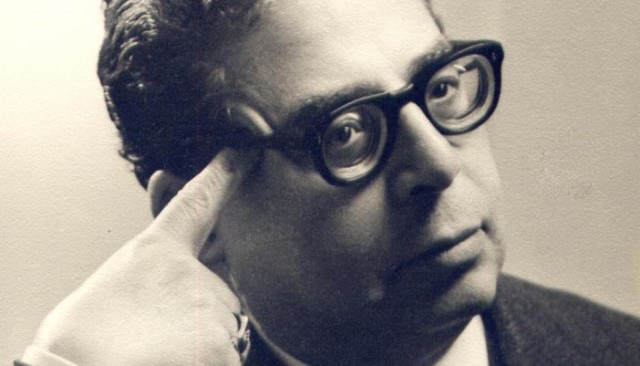Understanding Language’s Influence in Times of Fear
Language is important, especially for those such as linguists wishing to understand further its structure, grammar, syntax, and phonetics. They analyse these aspects of language, unpacking them to better understand their meanings and contexts. This in essence is the attempt to deal with how relations are encoded between entities – such as people and animals – to convey, process, and assign meaning.
Subfields within linguistics include the likes of pragmatics, which deals with how context influences meaning, and also semantics which deals with truth conditions. This is done through the examination of signifiers, such as words or phrases.
This is all relevant and important to park in one’s mind when we look at the wording within national anthems in modern times. The influence they have on their populations and indeed others through their use of words and sentence structures cannot be underestimated. In many cases, they are militant calls to arms from blood-soaked times past where nationalism was prevalent across many countries, particularly those emerging from the shadow of colonialism by imperial powers.
The question in these trying times for me is this: Are they counter-productive in times of fear? If we are to gain the moral high ground and ultimately some victory of sorts over the latest manifestation of terrorism today, it does seem counter-productive and contradictory when rightly angry French citizens sing lyrics such as “may impure blood water our fields!”. Sentences like this – irrespective of their actual historical context – incite a gravitation towards violence, and ultimately conflict. It would be naive to not admit some people in the crowd want to fight fire with fire with terrorism, but in doing so in its case, we will be making an endemic into a pandemic. Taking the hammer to the problem – such as carpet bombing – does nothing for our security at home but exponentiates the problem.
Parallels
How else are we to we interpret lines in the Turkish national anthem that cry out that “tears of blood shall, oh Lord, spill out from my every wound..perhaps only then, shall I peacefully ascend and at long last reach the heavens”. It might be in the name of nationalism during Turkey’s trying times in its struggle for independence, but the rhetoric isn’t much different to that of suicide-bombers justifying their own actions to reach paradise. Different methods and different values but the same idea of martyrdom transcends nonetheless.
Such passages ingrained in the national psyche throughout the lives of citizens can only support these militant tendencies that for me prevent critical thinking by individuals on important issues such as modern terrorism today. As the anthem further states, “Martyrs would burst forth should one simply squeeze the soil! Martyrs! May God take my life, all my loved ones, and possessions from me if he will”. Flippancy for life and the lives of others, complete subordination to a deity, and willingness to take up arms for that deity in the name of a cause, all have far too many parallels that just scream out. This gives further credence to the fundamental truth that religion, like nationalism, is a vehicle for extreme points of views within the makeup of a larger crowd, and not the root cause in itself.
The Italian’s contribution of “we are ready to die!” and the Vietnamese’s “our glorious path is built on the corpses of our foes” are worthy additions. Both were founded in the midst of widespread struggles for independence, and while it takes brave words to transform and entice men onto the field of battle, their ability to offer solace from the conventional warfare of terrorism and in the broader sense modern society that has nationalised globally has been assuredly more hollow in light of recent events.
The Alternative
Seeing the widespread condemnation across the broad spectrum of societies around the world has given us the answer that this conclusion has sought; together we as people of the world must unilaterally condemn and stand together against such acts of violence, for we are all the same, and all of one. Leaving behind our blood splattered pasts as points of reference for comfort and turning instead to each other and the values of humanity that make it great will mark elegantly the divide between the future and the past.
That the words of Algeria’s national anthem ‘Qassaman’ was penned by Moufdi Zakaria, who during his time as a prisoner of French colonial forces in Algiers expressed such sentiments as “when we spoke, no one listened to us, So we have taken the noise of gunpowder as our rhythm, And the sound of machine guns as our melody” strike a deep chord. This is especially felt when it has been said the words were daubed in blood by Zakaria on his prison cell wall, burning themselves bright into the cold stone. Their meaning was clear: “O France , this is the day of reckoning”. His ‘pledge’ or ‘Qassaman’ was borne out of conflict, and through Algeria’s anthem, and like many others, these struggles are remembered today.
Borderlands
‘Your Country Needs You’ has taken on quite a different meaning today. It has evolved from its origins of land, country, and monarchy to something more like ‘Your Species Needs You’. The issue of terrorism is transnational, opaque and something that nation states clearly cannot answer on their own. The importance of international organisations now to bring people together is incredibly important. They are able to transcend borders in what is essentially a borderless issue. As we globalise, the reduction in the relevance of borders in international issues will become even more crystalised.
Will these call to arms serve us adequately against future attacks, whether they be in Baghdad, Beirut, Paris, Islamabad, Tel Aviv? Clearly they are not a response, nor their messages of violence and revenge. They are passages of times past that brought us to where we as societies are today, but modern times call for modern approaches. Justice would be a good start, particularly for the people of the Middle-East. The cycle of conflict in our minds and words must be broken if we are to succeed. Rather than a call to arms, it is time to listen to people like Moufdi Zakaria.


